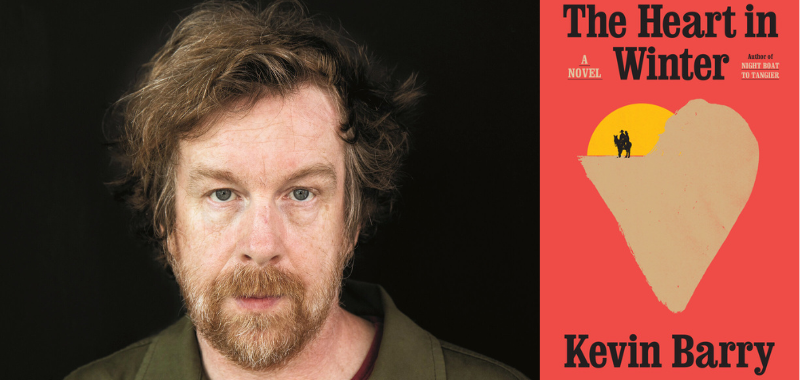First Draft: A Dialogue of Writing is a weekly show featuring in-depth interviews with fiction, nonfiction, essay writers, and poets, highlighting the voices of writers as they discuss their work, their craft, and the literary arts. Hosted by Mitzi Rapkin, First Draft celebrates creative writing and the individuals who are dedicated to bringing their carefully chosen words to print as well as the impact writers have on the world we live in.
Article continues after advertisement
In this episode, Mitzi talks to Kevin Barry about his new novel, The Heart in Winter.
Subscribe and download the episode, wherever you get your podcasts!
From the episode:
Mitzi Rapkin: You said that early on in your writing career that you were very interested in the language, and that now you’re more interested in the characters – and I’m curious how much you’re influenced by film. Your style is very iconic and has a very strong voice and a very strong rhythm, and in many ways, it’s very spare. And I don’t know if part of that was for this western novel, that you were matching your style with the tone and energy of the story.
Kevin Barry: With prose in the novels, I’m more inclined to rein it in frequently now and leave it go loose and wild when I need to, or leave it go very lyrical when I need to, but also to have long passages where it’s very crisp and almost austere and cut back. What I’m looking for always is to try and maintain a balance between wildness and control, and it’s quite a precarious balance to try and keep. I want to have wildness in my stories in because life does, and life is wild and spins out of control and goes in unpredictable ways that we can never figure out. And you have to have that to give your fiction the sense of real, lived, difficult, tricky life. But I also want that control where I’m really guiding and steering the narrative and where I’m able to manipulate the reader. Some writers will tell you, they never think about the reader, but I think about the reader all the time, and in a openly antagonistic way. I try to figure out how to manipulate the reader in terms of their emotions. So, there’s a lot of comedy in my books. I would consider myself fundamentally a comic writer in lots of ways, because if you get the reader laughing, and even if it’s just an occasional chuckle or a low, steady sense of chuckling all the way through, that’s a physical response. A laugh is a physical response, and the reader is really opening up to you. And that’s when you can really go in with the darker stuff and the difficult stuff and the really emotional stuff and make it a really intense experience. And that’s above all what I’m aiming for. If somebody is good enough to pick up one of my short novels that you’re going to get through in a few hours, I want it to be a really intense and transporting experience, because that’s what I believe a work of fiction can be if it’s a good one. You know, my formative reading experiences taught me that a book can be a mode of transport, that it can lift you up from where you are and just put you in a different world. And you totally buy into it, and you’re totally there.
***
Kevin Barry is the author of the novels Night Boat to Tangier, which was longlisted for the Booker Prize, Beatlebone, and City of Bohane as well as three story collections including Dark Lies the Island. His stories and essays have appeared in the New Yorker, Granta and elsewhere. He also works as a playwright and screenwriter lives in County Sligo, Ireland. His new novel is The Heart in Winter.

